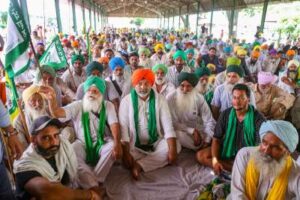The Hon’ble Supreme Court’s bench of Aftab Alam and Dr. Arijit Pasayat JJ, in CHATURBHUJ VS SITA BAI Observes:
Courts to consider status of the Parties, their respective needs, capacity of husband to pay, having regard to reasonable expanses for his own maintainace and other legal obligation.
While deciding the SLP arrived due to impugned order passed by the High Court, ther Hon’ble court after granting the relief to the appellant the court further observed While dealing with the ambit and scope of the provision contained in Section 125 of the Code, it has to be borne in mind that the dominant and primary object is to give social justice to the woman, child and infirm parents etc. and to prevent destitution and vagrancy by compelling those who can support those who are unable to support themselves but have a moral claim for support. The provisions in Section 125 provide a speedy remedy to those women, children and destitute parents who are in distress. The provisions in Section 125 are intended to achieve this special purpose. The dominant purpose behind the benevolent provisions contained in Section 125 clearly is that the wife, child and parents should not be left in a helpless state of distress, destitution and starvation.” In Chaturbhuj v. Sita Bai[4], reiterating the legal position the Court held: –
The court further said
Section 125 Cr.P.C. reads as follows:
“125. (1) If any person having sufficient means neglects or refuses to maintain
(a) his wife, unable to maintain herself, or
(b) his legitimate or illegitimate minor child, whether married or not, unable to maintain itself, or
(c) his legitimate or illegitimate child (not being a married daughter) who has attained majority, where such child is, by reason of any physical or mental abnormality or injury unable to maintain itself, or
(d) his father or mother, unable to maintain himself or herself, a Magistrate of the First Class may, upon proof of such neglect or refusal, order such person to make a monthly allowance for the maintenance of his wife or such child, father or mother, at such monthly rate not exceeding five hundred rupees in the whole, as such Magistrate thinks fit, and to pay the same to such person as the Magistrate may from time to time direct:
Provided that the Magistrate may order the father of a minor female child referred to in clause
(b) to make such allowance, until she attains her majority, if the Magistrate is satisfied that the husband of such minor female child, if married, is not possessed of sufficient means.
Explanation .For the purposes of this Chapter,
(a) ‘minor’ means a person who, under the provisions of the Indian Majority Act, 1875 (9 of 1875), is deemed not to have attained his majority;
(b) ‘wife’ includes a woman who has been divorced by, or has obtained a divorce from, her husband and has not remarried.”
“(2) Any such allowance for the maintenance or interim maintenance and expenses of proceeding shall be payable from the date of the order, or, if so ordered, from the date of the application for maintenance or interim maintenance and expenses of proceeding, as the case may be.”;] (3) If any person so ordered fails without sufficient cause to comply with the order, any such Magistrate may, for every breach of the order, issue a warrant for levying the amount due in the manner provided for levying fines, and may sentence such person, for the whole, or any port of each month’s allowance 4 [allowance for the maintenance or the interim maintenance and expenses of proceeding , as the case may be] remaining unpaid after the execution of the warrant, to imprisonment for a term which may extend to one month or until payment if sooner made: Provided that no warrant shall be issued for the recovery of any amount due under this section unless application be made to the Court to levy such amount within a period of one year from the date on which it became due:
Provided further that if such person offers to maintain his wife on condition of her living with him, and she refuses to live with him, such Magistrate may consider any grounds of refusal stated by her, and may make an order under this section notwithstanding such offer, if he is satisfied that there is just ground for so doing.
Explanation.-If a husband has contracted marriage with another woman or keeps a mistress, it shall be considered to be just ground for his wife’s refusal to live with him.
(4) No wife shall be entitled to receive an 4 [allowance for the maintenance or the interim maintenance and expenses of proceeding , as the case may be] from her husband under this section if she is living in adultery, or if, without any sufficient reason, she refuses to live with her, husband, or if they are living separately by mutual consent.
(5) On proof that any wife in whose favour an order has been made under this section is living in adultery, or that without sufficient reason she refuses to live with her husband, or that they are living separately by mutual consent, the Magistrate shall cancel the order.”

ANIL SRIVASTAV ADVOCATE
The object of the maintenance proceedings is not to punish a person for his past neglect, but to prevent vagrancy by compelling those who can provide support to those who are unable to support themselves and who have a moral claim to support.
The phrase “unable to maintain herself” in the instant case would mean that means available to the deserted wife while she was living with her husband and would not take within itself the efforts made by the wife after desertion to survive somehow
Section 125 Cr.P.C. is a measure of social justice and is specially enacted to protect women and children and as noted by this Court in Captain Ramesh Chander Kaushal v. Mrs. Veena Kaushal and Ors. (AIR 1978 SC 1807) falls within constitutional sweep of Article 15(3) reinforced by Article 39 of the Constitution of India, 1950 (in short the ‘Constitution’). It is meant to achieve a social purpose. The object is to prevent vagrancy and destitution. It provides a speedy remedy for the supply of food, clothing and shelter to the deserted wife. It gives effect to fundamental rights and natural duties of a man to maintain his wife, children and parents when they are unable to maintain themselves. The aforesaid position was highlighted in Savitaben Somabhai Bhatiya v. State of Gujarat and Ors. (2005 (2) Supreme 503
The Hon’ble court further observed and laid the law, the burden of proof is on wife who sought the maintenance from her husband, as she is not able to maintain herself.
IN Vinay Paramar V Paramjeet Paramaar the Bench of Justice P.Sathasivam Observes:
Courts to consider status of the Parties, their respective needs, capacity of husband to pay, having regard to reasonable expanses for his own maintain aceand other legal obligation while deciding petition for Maintenance
In Shri Bhagwan Dutt vs. Smt. Kamla Devi and Anr.(1975) 2 SCC 386,
though this Court has considered the amount of maintenance payable to wife under Section488 of the Code of Criminal Procedure, 1898, the principle laid down is applicable to the case on hand. In para 19, this Court held:
“The object of these provisions being to prevent vagrancy and destitution, the Magistrate has to find out as to what is required by the wife to maintain a standard of living which is neither luxurious nor penurious, but is modestly consistent with the status of the family. The needs and requirements of the wife for such moderate living can be fairly determined, only if her separate income, also, is taken into account together with the earnings of the husband and his commitments.”

In IKJOT CHATWAL VS BALVIR CHATWAL the Hon’ble Justice Aruna Suresh of Delhi High Court Observes:
Thus, it is clear that petitioner is financially independent and is having handsome income from her business. Hence, petitioner, being self-employed having good income, is equally liable to share day-to-day and other expenses of the children.
The Hon’ble court laid down the law “Wife independent, having business and source of income, denied maintenance.”
The Bench Of Justice Pratibha Rani Justice in Hon’ble Delhi High Court in DAMANPREET KAUR VS INDERJEET JUNEJA Observes:
Well educated lady earning well earliar and had chosen not to work of her own will, though she had capacity to work and find a suitable job for herself, is not eligible for maintenance.
In Smt.Mamta Jaiswal vs. Rajesh Jaiswal 2000(3) MPLJ 100,
The High Court of Madhya Pradesh while dealing with identical situation observed that well qualified spouses desirous of remaining idle, not making efforts for the purpose of finding out a source of livelihood, have to be discouraged, if the society wants to progress. For better appreciation, relevant paragraphs of the said decision are reproduced hereunder:-
“In view of this, the question arises, as to in what way Section 24 of the Act has to be interpreted. Whether a spouse who has capacity of earning but chooses to remain idle, should be permitted to saddle other spouse with his or her expenditure? Whether such spouse should be permitted to get pendent lite alimony at higher rate from other spouse in such condition? According to me, Section 24has been enacted for the purpose of providing a monetary assistance to such spouse who is incapable of supporting himself or herself inspite of sincere efforts made by him or herself. A spouse who is well qualified to get the service immediately with less efforts is not expected to remain idle to squeeze out, to milk out the other spouse by relieving him of his or her own purse by a cut in the nature of pendent lite alimony. The law does not expect the increasing number of such idle persons who by remaining in the arena of legal battles, try to squeeze out the adversary by implementing the provisions of law suitable to their purpose. In the present case Mamta Jaiswal is a well qualified woman possessing qualification like M.Sc. M.C M.Ed. Till 1994 she was serving in Gulamnabi Azad Education College. It impliedly means that she was possessing sufficient experience. How such a lady can remain without service? It really put a big question which is to be answered by Mamta Jaiswal with sufficient cogent and believable evidence by proving that in spite of sufficient efforts made by her, she was not able to get service and, therefore, she is unable to support herself. A lady who is fighting matrimonial petition filed for divorce, cannot be permitted to sit idle and to put her burden on the husband for demanding pendente lite alimony from him during pendency of such matrimonial petition. Section 24 is not meant for creating an army of such idle persons who would be sitting idle waiting for a „dole‟ to be awarded by her husband who has got a grievance against her and who has gone to the Court for seeking a relief against her. The case may be vice versa also. If a husband well qualified, sufficient enough to earn, sit idle and puts his burden on the wife and waits for a ‟dole‟ to be awarded by remaining entangled in litigation. That is also not permissible. The law does not help indolents as well idles so also does not want an army of self made lazy idles. Everyone has to earn for the purpose of maintenance of himself or herself, at least, has to make sincere efforts in that direction. If this criteria is not applied, if this attitude is not adopted, there would be a tendency growing amongst such litigants to prolong such litigation and to milk out the adversary who happens to be a spouse, once dear but far away after an emerging of litigation. If such army is permitted to remain in existence, there would be no sincere efforts of amicable settlements because the lazy spouse would be very happy to fight and frustrate the efforts of amicable settlement because he would be reaping the money in the nature of pendent lite alimony, and would prefer to be happy in remaining idle and not bothering himself or herself for any activity to support and maintain himself or herself. That cannot be treated to be aim, goal of Section 24. It is indirectly against healthiness of the society. It has enacted for needy persons who in spite of sincere efforts and sufficient effort are unable to support and maintain themselves and are required to fight out the litigation jeopardizing their hard earned income by toiling working hours.
In the present case, wife Mamta Jaiswal, has been awarded Rs.800/- per month as pendent lite alimony and has been awarded the relief of being reimbursed from husband whenever she makes up a trip to Indore from Pusad, Distt. Yeotmal for attending Matrimonial Court for date of hearing. She is well qualified woman once upon time obviously serving as lecturer in Education College. How she can be equated with a gullible woman of village? Needless to point out that a woman who is educated herself with Master‟s degree in Science, Masters Degree in Education, would not feel herself alone in travelling from Pusad to Indore, when at least a bus service is available as mode of transport. The submission made on behalf of Mamta, the wife, is not palatable and digestible. This smells of oblique intention of putting extra financial burden on the husband. Such attempts are to be discouraged.”
It is also observed in the above case, the court while deciding the maintanaince application or petition the hon’ble court having all the power to pass the order in favour of Children if any, without having the party in the said petition.
The above discussion let us know that wife is not entitled to maintaince in the above case.
This Article is written by ANIL SRIVASTAV ADVOCATE DELHI HIGH COURT & SUPREME COURT OF INDIA
You can read my blog and reach to me on www.advocateanil.skynova.io or www.facebook.com/anilsrivastav89 mail me at[email protected] you also can call me to further advice or file the cases RELETED TO MATRIMONIAL DISPUTES or any kind@ 9716757592 Or 9643831103.



